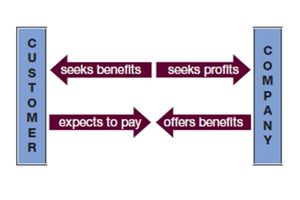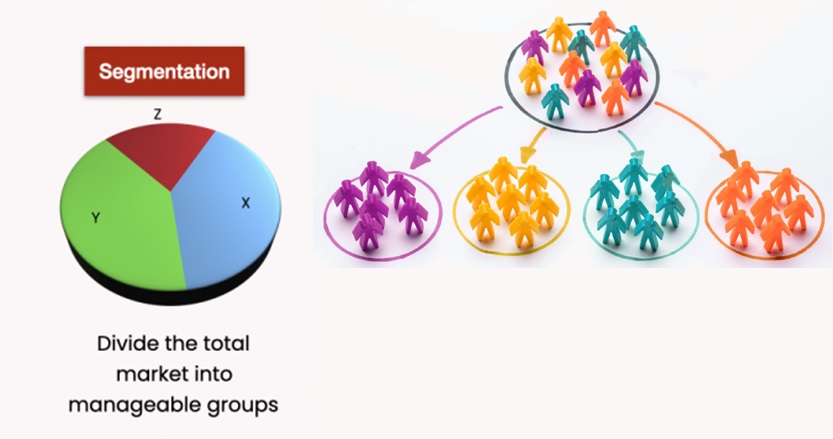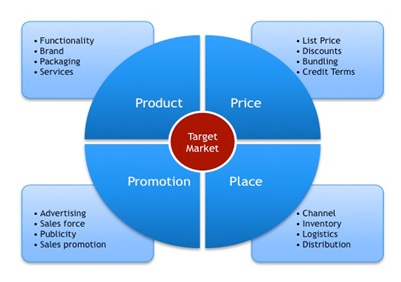- Case StudyHelp.com
- Sample Questions
Why Is Marketing Management Important for Business?
Marketing management is of importance as it helps to stand competent in highly thriving competition in the market. Our MBA writers are field experts and can provide excellent online Marketing Assignment Writing Help Services to stressed ones. Casestduyhelp.com Experts No.1 Marketing Management Assignment Topics Provider for Students in Australia, UK, USA, UAE and other countries. Hire our Experts Today and Getting an A+ Score grade with a 100% satisfaction guarantee.
Discussion Questions #1
- What is the definition of marketing?
- What can be marketed?
What is Marketing?
Ask the average person, “What is marketing?” and they might say:
- “Marketing is sales and advertising.”
- “Marketers make people buy stuff they don’t need and can’t afford.”
- “Marketers are the people who call you while you’re trying to eat dinner.”
Marketing Defined
- Marketing is defined as an exchange between a firm and its customers
What Can We “Market”?
What is marketed?
- Goods
- Services
- Events and experiences
- Persons
- Places and properties
- Organizations
- Information
- Ideas
Marketing is Everywhere
Figure 1.2 illustrates that you can market just about anything.

Evolution of Modern Marketing
Company Orientations
- Production orientation
- Product orientation
- Sales orientation
- Marketing/ Customer orientation
Production Orientation
- Premise: consumers prefer products that are widely available and inexpensive.
- Focus on:
- High production efficiency
- Low costs
- Mass distribution
Product Orientation
- Premise: consumers favor products offering the most quality, performance, or innovative features.
- Focus on:
- Making superior products
- Improving them over time
Selling Orientation
- Premise: customers, if left alone, will not buy enough of the organization’s products.
- Focus on:
- Aggressive selling and promotion efforts
Marketing/ Customer Orientation
- Premise: find the right product for your customers.
- Focus on:
- Needs of the buyer
Evolution of Modern Marketing
- Product/production orientation
- Focus on building a better gadget
- Sales orientation
- Focus on convincing the customer that your product works best for them
- Customer orientation
- Focus on identifying customers’ wants BEFORE formulating attractive solutions
Discussion Questions #2
- Which orientation do you think would mostly likely lead to an exchange?
- Who do you think is responsible for marketing?
Who Is Responsible for Marketing?
- Marketing and customer satisfaction is everyone’s responsibility
- Marketing should permeate the firm
- Accounting/finance
- Sales
- Research and development
Reasons to Measure Marketing Success
- Pressure to show results
- Ensure that the chief marketing officer (CMO) carries as much weight as the CEO, CFO, or COO
Measuring Marketing Success
- Quantify results when possible
- Sometimes the effectiveness of marketing programs is easy to quantify
- Did the coupon promotion lift sales?
- Measure the percentage sales increase, etc.
- Did the direct mail campaign increase web usage?
- Measure the number of web visits, etc.
- Did the coupon promotion lift sales?
- However, sometimes the effectiveness is not easy to quantify
- Was the segmentation study effective?
- Difficult to quantify
- Did the advertising campaign increase sales?
- Difficult to quantify because great advertising is geared toward long-term brand building not short-term results
- Was the segmentation study effective?
Marketing Management Framework
- The 5Cs, STP, and the 4Ps constitute the marketing management framework
5Cs
- Customer
- The firm’s current and potential customers
- What are current customers’ preferences, buying trends, etc.?
- What are potential customers’ preferences? Should they be targeted?
- The firm’s current and potential customers
- Company
- The firm’s capabilities, resources, etc.
- What does it do well? (Strength)
- What doesn’t it do well? (Weakness)
- What customer benefits can we provide?
- The firm’s capabilities, resources, etc.
- Context
- Macro-environmental forces facing the firm
- What is going on politically or legally that might affect the firm?
- What is going on with the economy that might affect the firm?
- What trends are occurring in society that might affect the firm?
- What technological innovations might affect the firm?
- Macro-environmental forces facing the firm
- Collaborators
- The companies/people firm works with
- Are these relationships strong? Can these relationships be improved or leveraged?
- The companies/people firm works with
- Competitors
- The companies/people firm works against and how they compare to the firm in terms of resources, capabilities, customer preferences, reaction patterns, etc.
STP
- Segmentation
- Grouping customers with similar needs
- Targeting
- Pursuing segment who makes the most sense for the firm
- Positioning
- Communicating product’s benefits clearly to the intended target
- Developed through the 4Ps
- Communicating product’s benefits clearly to the intended target
Segmentation
Targeting
Positioning
4Ps
- Product
- Goods or services customers need or want
- What should constitute your product mix? What features and benefits should comprise each product?
- Price
- How much should you charge given your costs, competitive pricing, and customer demand?
- Place
- How will you get the product into the customers’ hands? Will you go directly to customers or use channel partners?
- Promotion
- What communications mix will you use to communicate with your targets? What message will you use?
Considerations
- The situation facing the company changes over time
- Customer preferences change
- Competitors change offerings
- Government passes new laws, etc.
- Firm must consistently monitor the 5Cs
- 5Cs, STP, and 4Ps are interdependent
- As contextual factor changes, what would the impact be on distribution channels?
- As a collaborator shifts their demands, what will that do to our pricing structure?
- As our company sells off a nonperforming function, what impact might that have on our positioning and customer satisfaction?
- Marketers must understand the interdependencies
Book Layout
Flow of Each Chapter
- Each chapter covers the “What,” “Why,” and “How.”
- What is the topic in this chapter?
- Why does it matter?
- How do I do this?
Managerial Recap
- Marketing can make customers happier and companies more profitable
- Marketing is about trying to find out what customers would like, providing it to them, and doing so profitably
- Marketing facilitates a relationship between customers and a company
- Just about anything can be marketed
- The marketing management framework—5Cs, STP, 4Ps—will structure the book
- If you can remain customer-centric, you’ll be five steps ahead of the competition











